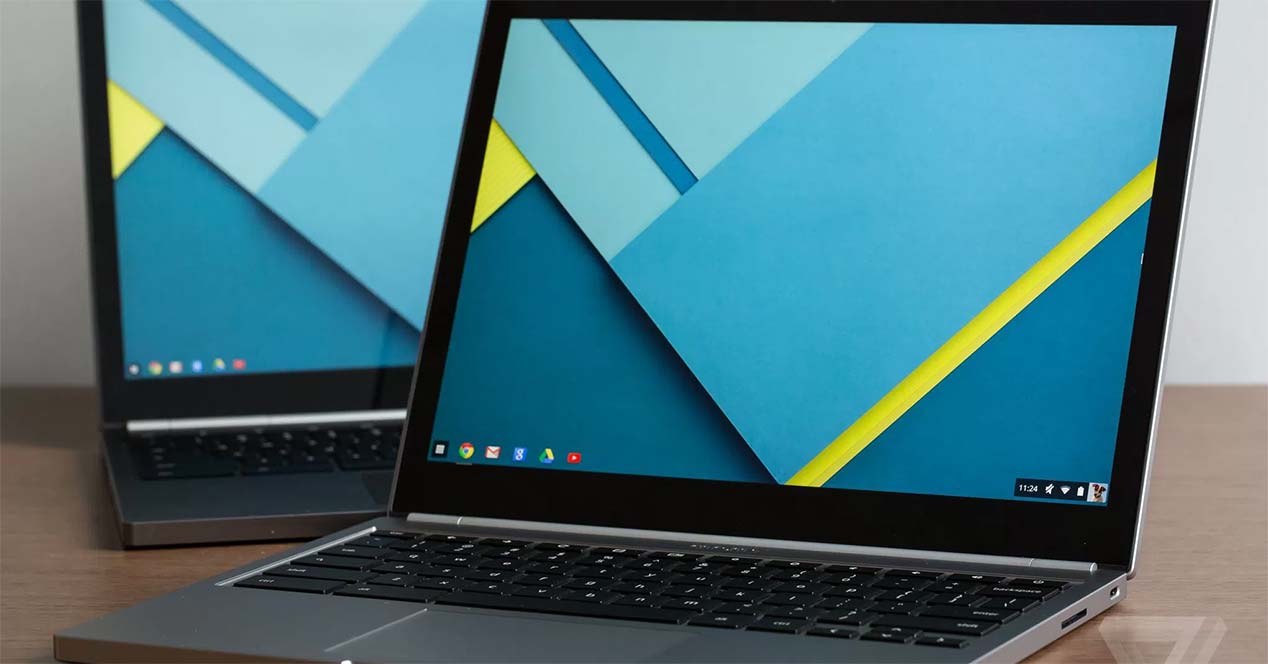
The Chromebooks they are preparing to be compatible with Linux applications. Nevertheless, Google has increased its minimum requirements, removing some older models from the list.
Google reduces the list of Chromebooks compatible with Linux apps
The Chromebooks they continue to improve little by little and, as the years go by, they become an even more complete option. Linux applications are on their way to these terminals, but Google conditions have changed. To date it indicated that it was necessary to have kernel 3.11 or a higher version. Now they have modified it to kernel 3.15 or higher.
The removed devices are as follows. It emphasizes that the Chromebook Pixel of the Year 2015, a device that preceded the current Google Pixelbooks and was a spearhead for Google. With just three years of life, it is left out of one of the most important updates for Chrome OS:
- AOpen Chromebase Mini (Feb 2017; tiger, veyron_pinky)
- AOpen Chromebox Mini (Feb 2017; fievel, veyron_pinky)
- ASUS Chromebook C201 (May 2015; speedy, veyron_pinky)
- Acer C670 Chromebook 11 (Feb 2015; paine, auron)
- Acer Chromebase 24 (Apr 2016; buddy, auron)
- Acer Chromebook 15 (Apr 2015; yuna, auron)
- Acer Chromebox CXI2 (May 2015; rikku, jecht)
- Asus Chromebit CS10 (Nov 2015; mickey, veyron_pinky)
- Asus Chromebook Flip C100PA (Jul 2015; minnie, veyron_pinky)
- Asus Chromebox CN62 (Aug 2015; guado, jecht)
- Dell Chromebook 13 7310 (Aug 2015; lulu, auron)
- Google Chromebook Pixel (Mar 2015; Samus)
- Lenovo ThinkCentre Chromebook (May 2015; tidus, jecht)
- Toshiba Chromebook 2 (Sep 2015; gandof, auron)
Same problem as with Android applications: old models are left out
With this shortening of the list, the moment is quite similar to when the applications of Android they began to reach the Chrome book. Google indicated that it would seek to reconcile all the models it could, but the truth is that several years later it has been found that it was simply not possible. The power of the first Chromebooks has nothing to do with it and the conception of these computers has changed over time. They have been transformed and allow you to do much more than what you allowed in your day.
Even so, the arrival of Linux applications to Chrome OS is good news and demonstrates Google's firm commitment to Chrome OS. Despite what it might seem, they are not on the way to disappearing and continue to live with Android, at least until the arrival of Fuchsia OS. It will be at that moment when it will be seen if it finally ends up disappearing or if we will even see three operating systems living together.